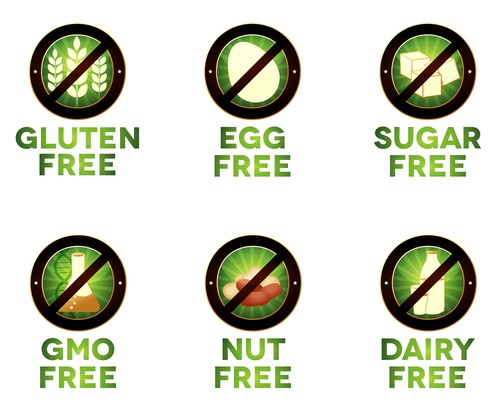Number of results 5
for food
17/01/2023 - The link between food and diseases

The effect that every food has in our health is extremely complex; it is multifactorial. In a same person, it could be different, depending on their physical and emotional condition, and evidently, it differs depending on the person. But studying many cases, it is possible to infer the tendency of certain food.
In most of the people, the body usually adapts to the consumption of our daily food, developing a tolerance. Even if these food are unhealthy, the body apparently doesn’t show any adverse effect; the same way that when starting to smoke or consuming alcohol the effects are prominent, but after some time the body gets use to it and it doesn’t react anymore, the same applies to certain food.
In this article I summarize the link between the intake of certain food and our health.
16/09/2018 - Food Intolerances: do they only affect some people?
 A food intolerance or allergy is a rejection of a certain food that can manifest itself in one or several of many ways, though principally in the form of gastrointestinal and dermatological problems.
A food intolerance or allergy is a rejection of a certain food that can manifest itself in one or several of many ways, though principally in the form of gastrointestinal and dermatological problems.We perceive these as illnesses, given that the body rejects foods that we consider to be healthy. This happens because the body considers these foods to be harmful. But according to the Natural Hygiene perspective, the human body is wise, and it always generates the most adequate responses towards survival. In that case, why is it that it reacts in such an exaggerated way to regular foods?
A possible answer to this question is that perhaps these foods that people develop intolerances/allergies to are not as healthy as we thought. But why do only some people reject these foods?
01/07/2016 - Cravings, food addiction and overeating
 Everybody knows that junk food is unhealthy, however, some people struggle to give up this kind of food. Other people would like to follow a certain diet, but they find it difficult to avoid eating the forbidden food, such as for example, cooked food in a raw food diet.
Everybody knows that junk food is unhealthy, however, some people struggle to give up this kind of food. Other people would like to follow a certain diet, but they find it difficult to avoid eating the forbidden food, such as for example, cooked food in a raw food diet.Every day, everybody in the occidental countries is faced with temptations focused on us by the food industry. They create the most attractive packages, ads and flavours to get us addicted to their food.
How can we resist? How can we manage to follow a healthy diet? How to control our cravings, food addictions and overeating?
25/06/2016 - The Food Combining System
 The food combining system, logically evolved from the study of gastric physiology and the actions of enzymes and digestive juices. Hygienic food selection and the principles or food combining are based on the nutritional needs of humans and the limitations of our digestive systems. It is not what we eat, but what we digest and assimilate, that determines the nourishment our bodies receive. Food combining is based on the discovery that certain combinations of food may be digested with greater ease and efficiency than others.
The food combining system, logically evolved from the study of gastric physiology and the actions of enzymes and digestive juices. Hygienic food selection and the principles or food combining are based on the nutritional needs of humans and the limitations of our digestive systems. It is not what we eat, but what we digest and assimilate, that determines the nourishment our bodies receive. Food combining is based on the discovery that certain combinations of food may be digested with greater ease and efficiency than others.This article has been extracted by the “Digestive Physiology and Food Combining” by T.C..Fry
15/03/2013 - Could hay fever be a nutritional problem?
 Several hypothesis try to give a reason of why hay fever or allergic rhinitis is touching more and more people in development world: hygiene hypothesis, genetic predisposition, polluted environment, ... but, what if food plays a determining role as trigger?
Several hypothesis try to give a reason of why hay fever or allergic rhinitis is touching more and more people in development world: hygiene hypothesis, genetic predisposition, polluted environment, ... but, what if food plays a determining role as trigger?
 Gemma Calzada is a Holistic Nutritionist Ph.D. and a certified GAPS practitioner, accredited by ASCA. Her mission is to improve health through nutrition and to help people suffering from a dietary intolerance to live happily.
Gemma Calzada is a Holistic Nutritionist Ph.D. and a certified GAPS practitioner, accredited by ASCA. Her mission is to improve health through nutrition and to help people suffering from a dietary intolerance to live happily. 
